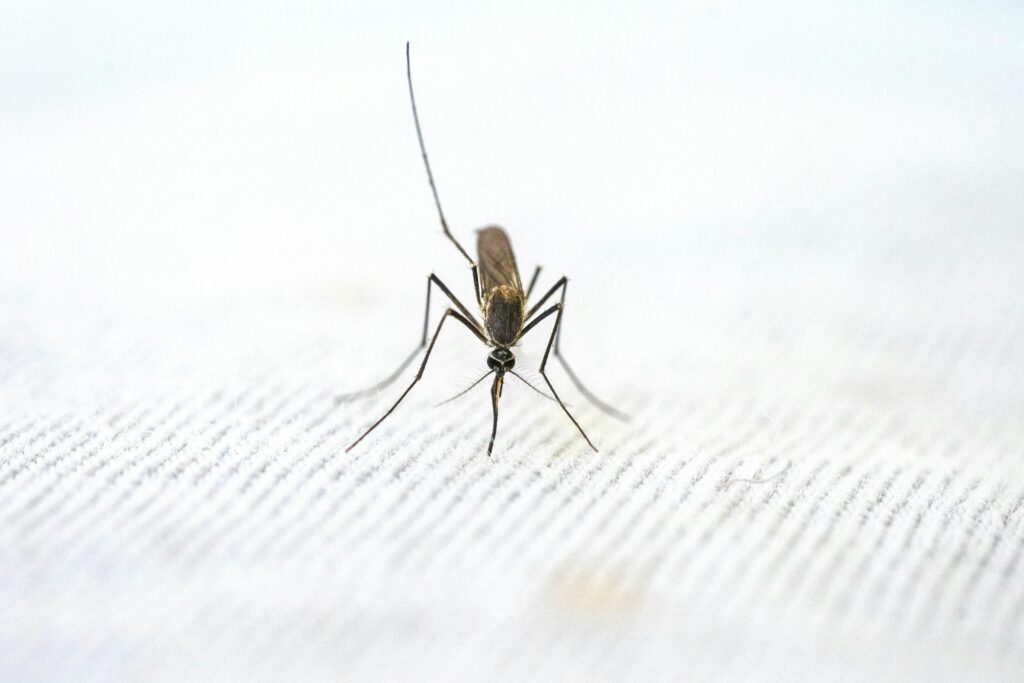Mosquito season hits hard every summer in New Jersey. If you are tired of itchy bites or worried about your family’s health, there are serious reasons to keep mosquitoes in check right now. Knowing the risks and how to protect your home matters whether you live near marshes, lakes, or in a busy neighborhood.
For homeowners looking to stay safe this summer, professional mosquito control offers proven protection against rising infestations. If you’re thinking of spraying your yard for mosquitoes, acting early can prevent bites and safeguard your home all season long.
Why Mosquitoes Are a Big Deal in NJ
Mosquitoes aren’t just annoying; some can carry dangerous diseases. Experts warn that New Jersey’s hot, humid summer makes the perfect environment for mosquitoes to breed quickly and spread illnesses like West Nile virus, Eastern Equine Encephalitis, and La Crosse encephalitis. Cases often spike between June and September.
How Bad Is Mosquito Season in New Jersey?
Each year, New Jersey’s mosquito control agencies trap and test thousands of mosquitoes to track health threats. The New Jersey Department of Health confirms West Nile cases every summer, with nine confirmed human cases and one death in 2024 alone. Public health officials urge residents to stay alert, especially from late spring through fall.
It only takes one bite to get sick, so don’t let your guard down.
Watch Out for These Mosquito-Borne Diseases in NJ
Mosquito-borne illnesses are definitely a concern, especially during the warmer months when mosquito activity is highest. Understanding the most common diseases and their symptoms can help you take precautions and protect yourself and your family.
1. West Nile Virus
West Nile Virus is the most common mosquito-borne disease in New Jersey. In most cases, it causes mild symptoms such as fever, headaches, and body aches, but about 1 in 150 people infected may develop severe complications, including inflammation of the brain. Older adults and individuals with weakened immune systems are at higher risk of serious illness.
Symptoms:
- Fever
- Headaches
- Body aches
- Fatigue
- Sometimes brain inflammation (encephalitis)
Treatment: There is no specific antiviral treatment for West Nile Virus. Most people recover on their own with rest, fluids, and over-the-counter pain relievers. Severe cases may require hospitalization and supportive care, such as IV fluids and respiratory support.
2. Eastern Equine Encephalitis (EEE)
Eastern Equine Encephalitis is rare but extremely dangerous, as it can cause life-threatening swelling of the brain. Both humans and horses can contract EEE, and cases tend to appear more frequently following periods of heavy rain. Symptoms usually begin suddenly with high fever, chills, and vomiting.
Symptoms:
- Sudden high fever
- Chills
- Vomiting
- Headache
- Confusion or neurological changes in severe cases
Treatment: There is no specific cure for EEE. Care focuses on relieving symptoms and supportive treatments in the hospital, including intravenous fluids, respiratory support, and medications to reduce brain swelling.
3. La Crosse Encephalitis
La Crosse Encephalitis primarily affects children and, if not diagnosed and treated early, can lead to neurological complications. Early recognition of symptoms is important to reduce the risk of lasting effects on the nervous system.
Symptoms:
- Fever
- Headache
- Nausea and vomiting
- Seizures (in severe cases)
- Neurological problems if untreated
Treatment: Like other mosquito-borne encephalitis viruses, there is no antiviral treatment for La Crosse Encephalitis. Supportive care is provided in a hospital setting to manage symptoms and prevent complications.
How Do Mosquitoes Spread Illness?
Mosquitoes are more than just pests; they are significant disease vectors. They transmit illnesses by biting infected hosts (animals or birds), ingesting pathogens, which then replicate within them. When the mosquito bites a human, its saliva, containing these pathogens, transmits the disease.
Mosquito populations boom in warm, wet conditions due to abundant standing water in puddles, birdbaths, gutters, and old tires. Their rapid life cycle allows hundreds of larvae to become adults in days, leading to increased disease risk after periods of heavy rain and warmth. Understanding this link is vital for effective control.
Signs You Need Mosquito Control, Fast!
Mosquitoes aren’t just annoying—they can also carry serious diseases. Knowing the warning signs of a mosquito problem can help you take action before it affects your health or your property.
Here are a few signs you might need to hire a mosquito control service:
- More bites than usual: If you or your family are getting bitten more frequently, especially during dawn and dusk when mosquitoes are most active, it may indicate a growing population nearby.
- Standing water: Mosquitoes breed in stagnant water. Check your yard, gutters, planters, old toys, buckets, and other areas where water can accumulate.
- Mosquitoes near doors and windows: If mosquitoes are hanging around entry points, they may be seeking easy access to your home or business.
- Illness symptoms after a bite: High fever, headache, or other unusual symptoms following a bite could signal a mosquito-borne illness and a need to reduce exposure immediately.
If your home or business is suddenly swarmed with mosquitoes, don’t wait to act. Prompt action can lower your risk of bites and disease. Contact a professional pest control service—we can identify the source of the infestation, implement effective solutions, and help protect your property. Taking swift measures not only safeguards your health but also gives you peace of mind.
How Can NJ Residents Prevent Mosquitoes?
Keeping mosquitoes out of your home or backyard takes more than just lighting a few citronella candles. While these can offer a small degree of temporary relief, a truly effective mosquito prevention strategy for New Jersey residents requires a more comprehensive approach.
By taking proactive steps and consistently applying proven methods, you can significantly reduce mosquito populations and enjoy your outdoor spaces with greater peace of mind.
Here are some essential steps to consider:
1. Remove Standing Water
Mosquitoes need water to lay eggs. Dump out or cover anything that holds water at least once a week. Regularly clean and treat swimming pools, and change pet water bowls daily. Be sure to empty any buckets, birdbaths, or plant saucers, and keep gutters clear of debris, as these can all collect standing water and become breeding grounds for mosquitoes.
2. Keep Up with Yard Maintenance
To minimize mosquito breeding grounds around your home, regularly trim tall grass, weeds, and shrubs, as these areas provide shelter for adult mosquitoes. Additionally, for any standing water that cannot be removed, such as bird baths or unused tires, consider using approved larvicides to prevent mosquito larvae from developing into adults.
3. Install Screens, Utilize Insect Repellant
To minimize the risk of mosquito bites, it’s crucial to install screens on all windows and doors, and promptly repair any existing rips or holes in them. When spending time outdoors, it’s highly recommended to use EPA-approved insect repellents, specifically those containing active ingredients like DEET or picaridin, as these have been proven effective in deterring mosquitoes.
Professional vs DIY Mosquito Prevention Options
While DIY mosquito control might seem convenient, it often falls short of fully addressing the problem. Professional pest control experts bring experience, knowledge, and tools that most homeowners don’t have, ensuring a more effective and long-lasting solution.
Pest control professionals conduct thorough inspections to uncover hidden mosquito breeding sites, which are often in unexpected places like clogged gutters, plant saucers, or forgotten buckets. They then apply safe, targeted treatments that eliminate mosquitoes without posing risks to your family or pets.
A professional approach provides lasting relief, freeing you from constant swatting and worry. With professional help, you can host a backyard BBQ without a single mosquito, or let your kids play outside until dusk without fear of itchy bites.
The peace of mind and enjoyment of your outdoor space is the real benefit that DIY solutions rarely match!
Keep NJ Mosquitoes at Bay!
With New Jersey’s mosquito season in full swing, understanding the risks and taking proactive steps are essential for protecting your family and home. From recognizing the signs of an infestation to implementing effective prevention strategies like eliminating standing water and maintaining your yard, every action helps.
Remember that while DIY methods offer some relief, professional pest control provides the most comprehensive and lasting protection against these pervasive pests and the diseases they carry!
Don’t let mosquitoes take over your summer. By staying informed about mosquito-borne threats like West Nile virus and EEE, and by acting quickly if you notice a problem, you can significantly reduce your risk. Reach out to pest control experts to ensure your property remains a safe and enjoyable space for everyone.
Mosquito Jane: Your Ultimate Solution for Mosquito Control
Mosquito Jane is a dedicated division of Action Termite and Pest Control, specializing in top-notch mosquito control solutions. Mosquito Jane brings the same commitment to excellence that you’ve come to expect from our services. Contact Mosquito Jane today to schedule an inspection and experience our expert mosquito control services.



